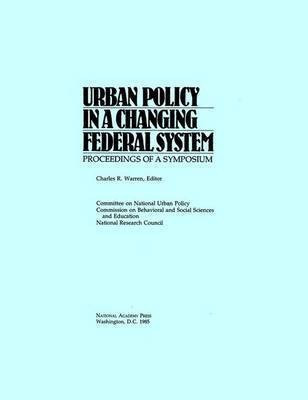Urban Policy in a Changing Federal System(English, Paperback, National Research Council)
Quick Overview
Product Price Comparison
When the United States' founding fathers set up a federal system of government, they asked a question that has never been satisfactorily settled: How much governmental authority belongs to the states, and how much to the national government? In an atmosphere of changing priorities and power bases, the Committee on National Urban Policy convened a symposium to address this division. The symposium examined the "New Federalism" as it relates to the Supreme Court, urban development, taxpayers, job training, and related topics. "Throughout the symposium the future evolution of the American federal system was debated," says the book's summary. "Yet whatever new idea or theory emerges, it is likely to continue to include the inevitable conflict between the allegiance to a national government and the respect for state and local loyalties."Table of Contents Front Matter Summary 1. Trends and Developments in Federalism: The Meaning for UrbanPolicy 2. The Supreme Court and the Federal System: A ConstitutionalFramework for Urban Policy 3. Fiscal Federalism After the California Taxpayers' Revolt: ASorting Out of Sorts 4. National-Urban Relations in Foreign Federal Systems: Lessons forthe United States 5. The Distributive Politics of the New Federal System: Who Wins?Who Loses 6. De Facto New Federalism and Urban Education 7. The Significance of the Job Training Partnership Act forFederal-State-Local Relationships 8. State-Local Partnership: Problems and Possibilities 9. Cities in the New Federalism 10. Changing Conceptions of the Governmental Role: Their Meaningfor Urban Policy Appendix: Symposium Participants


